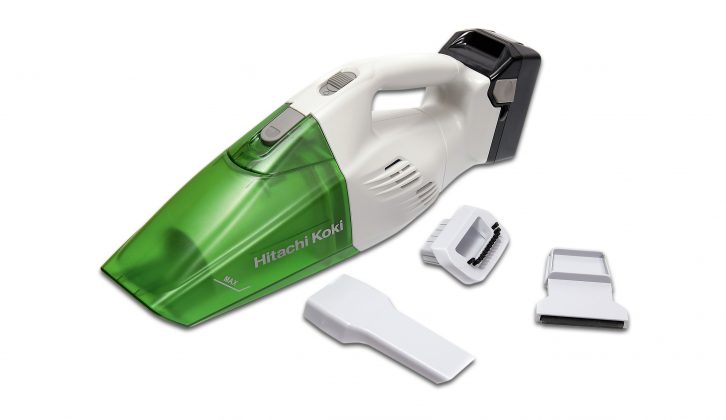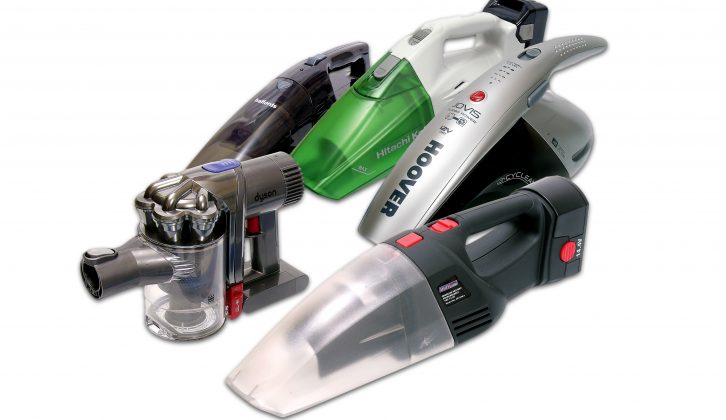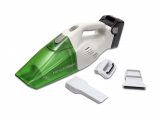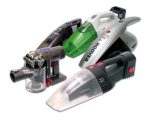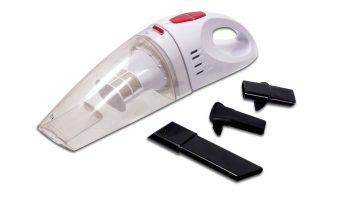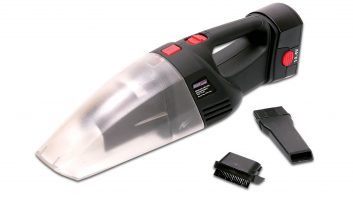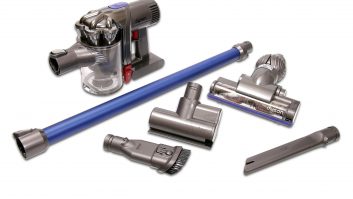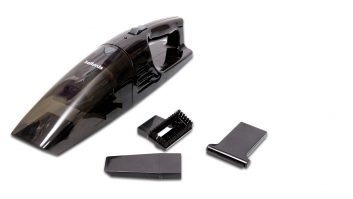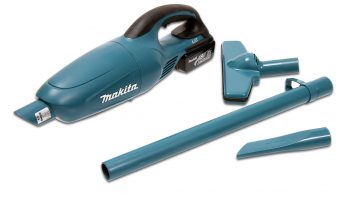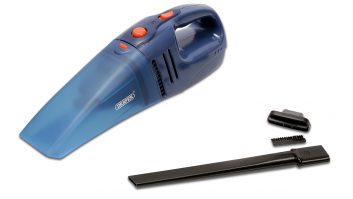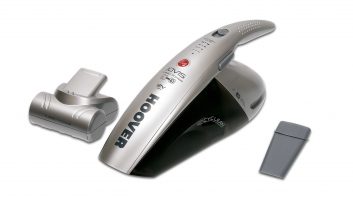Verdict
A bargain if you have 18-volt Hitachi power tools and can use the battery pack from them. Worth considering anyway because of the group-leading battery-pack stamina.
James Stanbury
Pros
Great stamina and suction
Battery pack works for other Hitachi power tools as well
Cons
Expensive if you don’t have other Hitachi power tools using the same battery pack
We all love the great outdoors – until it sneaks into our caravans. So what’s the best way to keep your van clean on a caravan holiday?
At one time, there were really two kinds of vacuum cleaners. Those that were mains powered were always big and heavy. The cordless models tended to be wheezy and not good for much more than scooping up the odd spill of sugar or coffee granules.
Over the last decade, or so, things have changed dramatically. James Dyson’s beloved cyclones, and others’ attempts at similar technology, have made vacuum cleaners much more efficient. Couple that with significant leaps forward in battery technology, and it’s now possible to buy cordless vacuum cleaners that almost make mains models redundant. In fact, many of today’s cordless units easily usurp the performance of pre-cyclone era mains vacuum cleaners.
These days, the biggest issue is to work out what type of cordless model to buy. Although some of those gutless compact models still exist at the budget end of the market, plenty of dearer versions boast powerful motors and beefy internal batteries – making them more than good enough for a spring clean of a typical caravan, yet small enough to take away as part of your kit.
Odd as it seems, power tool manufacturers have entered the market, too. They, after all, are experts in wringing maximum duration and power out of battery packs, and many of their vacs are seriously impressive in the suction stakes. Better still, they tend to use existing power-tool battery packs – making the vacs bought on their own brilliant value for money if you already have tools and chargers of the same brand and voltage.
We test nine portable vacuum cleaners, our main two criteria being suction and battery life. But we also factor in the cleaning attachments supplied, whether wet usage is possible, how frequently the unit needs emptying during use, and whether the filter can be washed or needs replacing once choked. As usual, value for money remains high on our judging agenda.
Each of the vacuum cleaners in our group test is listed as a separate accessory review: Hitachi Koki R18DSL, Sealey CPV144, Hoover Jovis Turbo Power SJ120CB, Argos 406/4815, Dyson DC44, Ryobi CHV182M, Halfords 12v Car Vacuum Cleaner, Makita BCL180Z, Draper 75033.
Hitachi Koki R18DSL
For stamina this vac is way out in front of those tested. Even after 40 minutes’ continual use, the 4Ah battery pack was still producing enough punch to give decent suction. Suction was good anyway – it equals the overall winner on this test (Sealey CPV144). The crevice and brush tool are joined by a squeegee attachment, which means the unit can clean wet and dry surfaces.
The price we’ve quoted, £143, includes everything: £30 vac, £74 4Ah battery pack and £39 charger.
It’s now possible to buy cordless vacuum cleaners that almost make mains models redundant
Technical Specifications
| Hitachi Koki R18DSL | £143 |
| 4Ah battery pack for Hitachi 18-volt power tools | £74 |
| Hitachi battery charger | £39 |
| Crevice and brush tool | included |
| Squeegee attachment for wet and dry use | included |
